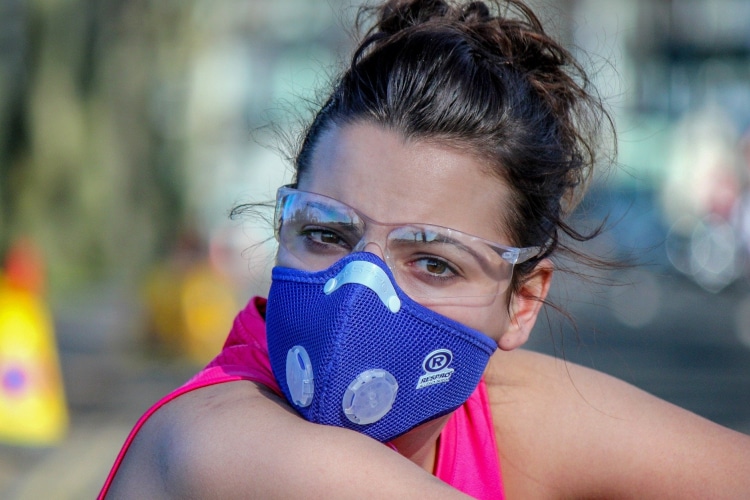
What Causes Acne and How To Treat It
Acne is an extremely common skin condition with a prevalence of 80% in females and 90% in male teenagers. However, it can occur at any age. A growing number of adults are being diagnosed with adult acne.
For most people, acne is a bothersome condition characterized by occasional flare-ups of blackheads, pimples, and pustules. Most often, pimples develop on the face, neck, upper chest, and/or the back. More severe forms can result in inflamed nodules and cysts with scarring.
Hormones called androgens stimulate increased oil production. The oil is broken down into free fatty acids by bacterial enzymes, which causes skin inflammation and abnormal plugging of the oil glands and hair follicles.
Pimples eventually rupture.
Acne can sometimes be confused with these conditions:
- Rosacea
- Folliculitis
- Dermatitis
Table of Contents
What can make acne worse?
Menstrual cycle
Acne often worsens premenstrual or mid-cycle
Prescription medications
Certain birth control pills, steroids, and lithium
Being overweight
Increased insulin production can signal the body to release extra male hormones called androgens, which are involved, which can cause pimple formation.
Stress
Pore-clogging
(Comedogenic) cosmetics, sunscreens, moisturizers, greases, and oils
Adolescence
Poor diet:
Excessive sugar, trans fats, fried, salt, and processed foods. In addition, insufficient intake of water, healthy oils, fruit and vegetables, and fiber can cause acne.
Excessive intake of foods
Chocolate, caffeine, carbonated beverages, milk products, seafood, and other iodine-rich foods can cause acne.
Tumors in the adrenal glands, polycystic ovarian syndrome (especially when adult acne occurs with irregular menstrual periods), and other health conditions can cause acne. Examination by your family physician is recommended to rule out these conditions.
Treatment
Conventional treatments for acne are usually quite successful. They can include cleansing agents and lotions made with benzoyl peroxide, gels or creams made modified forms of vitamin A, and antibiotics applied to the skin or taken orally. The risk of scarring is an important factor when considering the type of treatment.
Diet
a diet based on whole, unprocessed foods may benefit people with acne. Try to eat at least five servings of vegetables per day and at least one serving of fruit per day. Avoid eating refined sugar. Fried foods and trans fats such as milk, milk products, margarine, shortening, and other hydrogenated vegetable oils should be eliminated. Foods containing healthy omega-3 oils such as ground flaxseeds and sardines should be increased. Some people find that chocolate, caffeine, carbonated beverages, iodized salt, shellfish, wheat and/or milk products aggravate acne.
Regular bowel movements are important. Drink at least eight glasses of water a day. Increase fiber intake. In addition to eating fresh vegetables and fruit, choose whole grains. Some people may benefit from a one- to four-week liver detox diet based on fresh vegetables and fruit.
Vitamins & Nutritional Supplements
Vitamin A
Vitamin A may help to reduce sebum production. However, high doses of vitamin A can carry a risk of decreased bone density, birth defects, headache, and muscle and joint pain. Like the modified vitamin A prescription drugs, vitamin A can cause birth defects. Sexually active women of childbearing age should not take more than 5,000 IU per day unless they are under the guidance of a professional and they are using at least two reliable forms of birth control. Vitamin A supplementation may not be necessary if there is an adequate intake of beta-carotene, vitamin E, and zinc, all necessary for vitamin A formation. Decreasing unhealthy fats such as margarine, hydrogenated oils, processed foods, and other sources of trans fats can also improve absorption.
Zinc
This mineral, especially in the form of zinc gluconate or zinc sulfate, can help prevent acne. Zinc helps heal blemishes, reduces inflammation, and reduces androgenic hormonal effects on the skin. Begin by increasing food sources of zinc. Two studies comparing zinc to the antibiotic tetracycline found zinc to be as effective as tetracycline. Another study found a mild yet definite effect of zinc.
Vitamin B6
Vitamin B6 may help premenstrual or mid-cycle acne. This vitamin is essential for the proper metabolism of steroid hormones and can reduce the sensitivity of the skin to the effects of testosterone.
Herbs
an herbal blend that can help with acne consists of equal parts of the herbal extracts of sarsaparilla, yellow dock, burdock, and cleavers. These herbs are believed to be potent blood and lymph cleansers. Half a teaspoon per day of this blend can be taken three times per day combined with a healthy diet.
Tea tree oil
Applied to acne lesions may help to eliminate bacteria and reduce inflammation.
Bodywork
Massage is often recommended for people with skin problems. It can help to increase circulation and lymphatic drainage and speed the healing of blemishes.
Stress Reduction Techniques:
- Yoga
- Exercise
- Breathing techniques
- Biofeedback
- Massage
- Meditation






